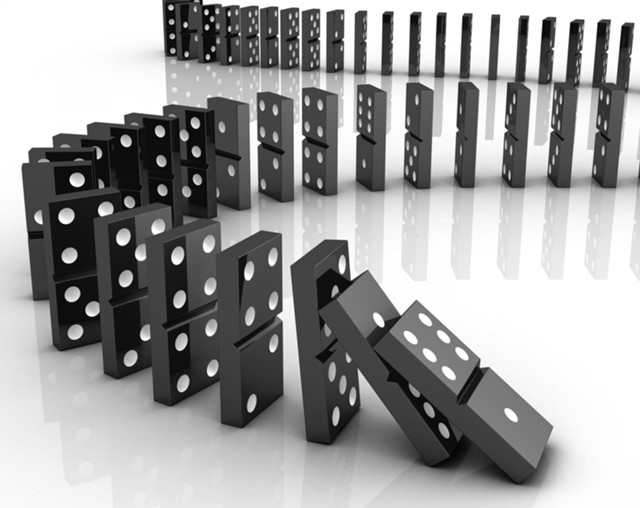WTO worries the domino effect will take hold.
Governments, industry and labor groups, and companies from around the world appear to be unanimous in their condemnation of the tariffs on steel and aluminum imports, and fearful of the consequences of such measures.

Axel Eggert, the director general of the EU steel association EUROFER, warned that blanket trade restrictions will “almost certainly be contested by WTO countries” and would “spark prompt retaliation alongside action from the EU.”
Eggert is concerned that the quotas will injure EU producers. “We expect swift and vigorous counteraction by the EU in order to prevent any negative impact on our industry,” he said. “The EU has an arsenal of trade remedies and safeguards available to defend its interests.”
Canada’s United Steelworkers director said that Canada is not dumping steel and aluminum into the U.S. and must be exempted from any potential trade restrictions. “There is no justification to include Canada with countries that systematically violate trade laws and engage in the dumping of illegally subsidized aluminum and steel,” said USW National Director Ken Neumann.
Australian Prime Minister Malcolm Turnbull is also looking for an exemption from Section 232 measures imposed. In an interesting twist, the Australian steel company BlueScope has a U.S. subsidiary called Steelscape that uses imported steel from Australia to produce coated steels for the U.S. construction market.
The company is concerned about measures that would prevent future growth. “Given that our investments support more than 3,000 U.S. jobs, and we have an appetite for more growth in that massive and highly attractive market,” said a spokesman for BlueScope, “we are certainly hoping for an outcome that does not disadvantage Australian steel exports.”
Perhaps the most upset with the Trump administration stance was the World Trade Organization (WTO).
The World Trade Organization (WTO) on March 4th asked member states to “stop the fall of the first dominoes” of a trade war. WTO Director General Roberto Azevedo said negotiators, “Once we start down this path it will be very difficult to reverse direction,” WTO Director General adding, “An eye for an eye will leave us all blind and the world in a deep recession.”
President of the European Commission, Jean-Claude Juncker said: “We strongly regret this step, which appears to represent a blatant intervention to protect US domestic industry and not to be based on any national security justification. Protectionism cannot be the answer to our common problem in the steel sector. Instead of providing a solution, this move can only aggravate matters. The EU has been a close security ally of the US for decades. We will not sit idly while our industry is hit with unfair measures that put thousands of European jobs at risk. I had the occasion to say that the EU would react adequately and that’s what we will do. The EU will react firmly and commensurately to defend our interests. The Commission will bring forward in the next few days a proposal for WTO-compatible countermeasures against the US to rebalance the situation.”
The EU Commissioner for Trade EU said, “These US measures will have a negative impact on transatlantic relations and on global markets. In addition, they will raise costs and reduce choice for US consumers of steel and aluminum, including industries that import these commodities. The EU will seek dispute settlement consultations with the US in Geneva at the earliest opportunity. The Commission will monitor market developments and if necessary will propose WTO-compatible safeguard action to preserve the stability of the EU market.
The root cause of problems in these two sectors is global overcapacity caused by non-market based production. This can only be addressed at the source and by working with the key countries involved. This go-it-alone action by the US will not help.





